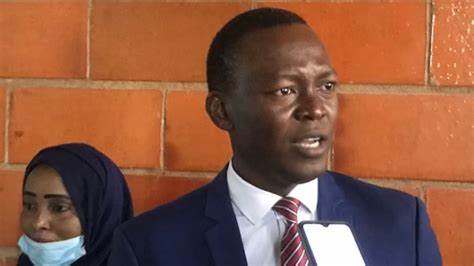Chad military leaders appoint former opponent PM
Chad’s transitional president General Mahamat Idriss Deby Itno on Monday appointed one of his leading opponents, who recently returned from exile, as prime minister. Succes Masra, president of The Transformers party, was a virulent opponent of the regime, which came to power in 2021 after the death of Idriss Deby Itno who led the country […]

Succes Masra, president of The Transformers party
Chad’s transitional president General Mahamat Idriss Deby Itno on Monday appointed one of his leading opponents, who recently returned from exile, as prime minister.
Succes Masra, president of The Transformers party, was a virulent opponent of the regime, which came to power in 2021 after the death of Idriss Deby Itno who led the country with an iron fist for 30 years.
Masra returned to Chad in November after reaching an agreement with the military leaders.
“Doctor Succes Masra is appointed prime minister, head of the transition government,” General Secretary to the Presidency Mahamat Ahmat Alabo announced on state TV.
- China willing to work with US, says Xi
- War on Gaza: Israeli protesters demand Netanyahu’s resignation
Days before a referendum last month on a new constitution – which saw 86 per cent of participants vote “yes” – Masra publicly urged supporters to vote in favour, with the positive outcome now expected to pave the way to elections.
He had argued that its adoption would accelerate the end of the transition, while the rest of the divided opposition urged Chadians to vote “no” or to boycott the December 17 referendum.
Eric Arsene, 35, a supporter of Masra’s party, said he was pleased about the new appointment.
It will help to “redress the political and economic situation of the country,” he said.
But Narcisse Armand, also 35, said he was not happy at Masra’s arrival as prime minister.
“I am against this nomination because light has not been shed on the October 20 massacre. The people of Chad require an explanation,” said Armand outside The Transformers’ party headquarters.
‘Black Thursday’
Masra went into exile shortly after October 20, 2022 protests against the military regime, which had just extended by two years an 18-month transition supposed to culminate in elections and the return of power to a civilian government.
Authorities say some 50 people were killed that day. The opposition and local and international NGOs put the toll between 100 and 300.
Almost all of the victims were shot dead by the military and the police, mainly in the capital N’Djamena.
In the aftermath of the massacre Amnesty International notably decried a lack of “serious investigation” into the killings and who was responsible.
Masra only returned from exile on November 3 following a reconciliation agreement, signed in the Democratic Republic of Congo capital, Kinshasa, on October 31, which guaranteed him free exercise of political activities.
He has told the government he wants to “continue dialogue… with a view to a peaceful political solution”.
Several opposition parties have distanced themselves from Masra, while speaking out against a general amnesty that the regime has granted for “all Chadians, civilians and military” involved in the events of the October 2022 protest which has become known as Black Thursday.
